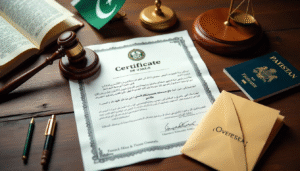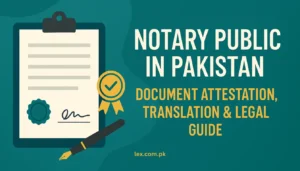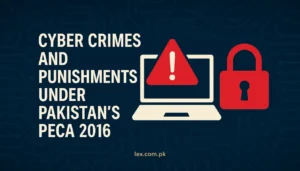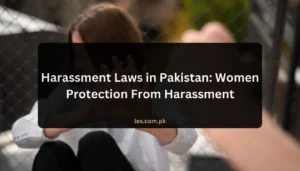Wife Maintenance Law in Pakistan & Alimony Solutions You Can Trust
Spousal maintenance, also known as Alimony or maintenance or in Urdu as (نان و نفقہ), is a critical aspect of Pakistani family law that provides financial support to wives during and after marriage. It is governed under the Muslim Family Laws and ensures that wives receive maintenance during marriage and for the period of breastfeeding and Iddah after divorce.
Instant Consultation
Alimony and Maintenance in Islam
Islam provides the complete set of rules regarding the maintenance of the wife. Most of the law in Pakistan regarding the maintenance of the wife is based on Islamic principles.
It can be observed in Surat No. 65: سورة الطلاق – Ayat No 6; copied here in Arabic, Urdu and English, as under;
أَسْكِنُوهُنَّ مِنْ حَيْثُ سَكَنتُم مِّن وُجْدِكُمْ وَلَا تُضَآرُّوهُنَّ لِتُضَيِّقُوا۟ عَلَيْهِنَّ ۚ وَإِن كُنَّ أُو۟لَـٰتِ حَمْلٍۢ فَأَنفِقُوا۟ عَلَيْهِنَّ حَتَّىٰ يَضَعْنَ حَمْلَهُنَّ ۚ فَإِنْ أَرْضَعْنَ لَكُمْ فَـَٔاتُوهُنَّ أُجُورَهُنَّ ۖ وَأْتَمِرُوا۟ بَيْنَكُم بِمَعْرُوفٍۢ ۖ وَإِن تَعَاسَرْتُمْ فَسَتُرْضِعُ لَهُۥٓ أُخْرَىٰ
تم اپنی طاقت کے مطابق جہاں تم رہتے ہو وہاں ان ( طلاق والی ) عورتوں کو رکھو اور انہیں تنگ کرنے کے لئے تکلیف نہ پہنچاؤ اور اگر وہ حمل سے ہوں تو جب تک بچہ پیدا ہولے انہیں خرچ دیتے رہا کرو پھر اگر تمہارے کہنے سے وہی دودھ پلائیں تو تم انہیں ان کی اجرت دے دو اور باہم مناسب طور پر مشورہ کرلیا کرو اور اگر تم آپس میں کشمکش کرو تو اس کے کہنے سے کوئی اور دودھ پلائے گی ۔
“Let them live where you live ˹during their waiting period˺, according to your means. And do not harass them to make their stay unbearable. If they are pregnant, then maintain them until they deliver. And if they nurse your child, compensate them, and consult together courteously. But if you fail to reach an agreement, then another woman will nurse ˹the child˺ for the father.”
Surat No 2 : سورة البقرة – Ayat No 233
۞ وَٱلْوَٰلِدَٰتُ يُرْضِعْنَ أَوْلَـٰدَهُنَّ حَوْلَيْنِ كَامِلَيْنِ ۖ لِمَنْ أَرَادَ أَن يُتِمَّ ٱلرَّضَاعَةَ ۚ وَعَلَى ٱلْمَوْلُودِ لَهُۥ رِزْقُهُنَّ وَكِسْوَتُهُنَّ بِٱلْمَعْرُوفِ ۚ لَا تُكَلَّفُ نَفْسٌ إِلَّا وُسْعَهَا ۚ لَا تُضَآرَّ وَٰلِدَةٌۢ بِوَلَدِهَا وَلَا مَوْلُودٌۭ لَّهُۥ بِوَلَدِهِۦ ۚ وَعَلَى ٱلْوَارِثِ مِثْلُ ذَٰلِكَ ۗ فَإِنْ أَرَادَا فِصَالًا عَن تَرَاضٍۢ مِّنْهُمَا وَتَشَاوُرٍۢ فَلَا جُنَاحَ عَلَيْهِمَا ۗ وَإِنْ أَرَدتُّمْ أَن تَسْتَرْضِعُوٓا۟ أَوْلَـٰدَكُمْ فَلَا جُنَاحَ عَلَيْكُمْ إِذَا سَلَّمْتُم مَّآ ءَاتَيْتُم بِٱلْمَعْرُوفِ ۗ وَٱتَّقُوا۟ ٱللَّهَ وَٱعْلَمُوٓا۟ أَنَّ ٱللَّهَ بِمَا تَعْمَلُونَ بَصِيرٌۭ ٢٣٣
مائیں اپنی اولاد کو دو سال کامل دودھ پلائیں جن کا ارادہ دودھ پلانے کی مدت بالکل پوری کرنے کا ہو اور جن کے بچے ہیں ان کے ذمہ ان کا روٹی کپڑا ہے جو مطابق دستور کے ہو ہر شخص اتنی ہی تکلیف دیا جاتا ہے جتنی اس کی طاقت ہو ماں کو اس کے بچے کی وجہ سے یا باپ کو اس کی اولاد کی وجہ سے کوئی ضرر نہ پہنچایا جائے وارث پر بھی اسی جیسی ذمہ داری ہے ، پھر اگر دونوں ( یعنی ماں باپ ) اپنی رضامندی اور باہمی مشورے سے دودھ چُھڑانا چاہیں تو دونوں پر کچھ گناہ نہیں اور اگر تمہارا ارادہ اپنی اولاد کو دودھ پلوانے کا ہو تو بھی تم پر کوئی گناہ نہیں جب کہ تم ان کو مطابق دستور کے جو دینا ہو وہ ان کے حوالے کر دو اللہ تعالٰی سے ڈرتے رہو اور جانتے رہو کہ اللہ تعالٰی تمہارے اعمال کی دیکھ بھال کر رہا ہے ۔
˹Divorced˺ mothers will breastfeed their offspring for two whole years, for those who wish to complete the nursing ˹of their child˺. The child’s father will provide reasonable maintenance and clothing for the mother ˹during that period˺. No one will be charged with more than they can bear. No mother or father should be made to suffer for their child. The ˹father’s˺ heirs are under the same obligation. But if both sides decide—after mutual consultation and consent—to wean a child, then there is no blame on them. If you decide to have your children nursed by a wet-nurse, it is permissible as long as you pay fairly. Be mindful of Allah, and know that Allah is All-Seeing of what you do.
Alimony and Maintenance Law in Pakistan
The right of women after divorce in Pakistan laws and Islam are well established, especially the Pakistani legislation covers every aspect to ensure that no wife is deprived of her rights of maintenance.
Under the Muslim Family Laws Ordinance 1961
Section 9 of this Act states that a wife has the right to receive adequate maintenance from her husband, and it is the husband’s duty to provide for her needs. He must maintain them fairly and equitably if he has more than one wife. If the husband fails in this responsibility, the wife has the right to seek legal action to enforce her right to maintenance.
Under the Family Courts Act, 1964
Under item 3 of Schedule Part I, made under Section 5 of this Act, the Family Court assumes exclusive jurisdiction to adjudicate matters related to the maintenance of a wife.
Right of Maintenance During Marriage
During the marriage, a wife is entitled to reasonable maintenance from her husband according to his financial capacity. This includes food, clothing, accommodation, and medical care. The Nikah Nama (the marriage contract) also allows for provisions regarding the wife’s maintenance, allowing both parties to determine the amount and duration of maintenance voluntarily.
Judgments below in this respect will shed light on it;
2021 CLC 1512 says that A husband is legally and morally obligated to maintain his wife under all circumstances.
Whereas, 2012 MLD 1394 also says that Under Section 5, when the matrimonial bond is intact, the husband is legally bound to maintain his wife.
Eligibility of Wife for Maintenance
If a wife is ready and willing to live with her husband and fulfil her marital duties, but the husband leaves her or stops supporting her without a valid reason, she has the right to ask for his financial support (maintenance).
In the judgment reported as 2011 MLD 571, it says that Under section 9 of the Muslim Family Laws Ordinance, 1961, a wife who is willing to fulfil her conjugal rights but is deserted by her husband without lawful excuse is entitled to claim maintenance.
Rights of Wife After Divorce in Pakistan
The rights of maintenance of a wife are secured by Islamic as well as Pakistan laws. In Islam and under Pakistani laws, the husband, even after divorce or dissolution of marriage by any mode, is legally, morally and Islamically bound to stay the maintenance for at least 3 months. i.e., the period of Iddat after divorce. However, if the husband wants to settle any finances and wishes to give more benefits, there is no bar to do it.
If you are an overseas Pakistani seeking Online Khula for Overseas Pakistani, our expert services can also help guide you through the process and ensure that your rights, including maintenance, are fully protected.
Maintenance Decided in The Nikahnama (marriage Contract)
The Nikahnama is a legal contract binding on both parties. The terms and conditions of the Nikahnama, including maintenance, are mutually agreed upon and documented in the marriage contract, specifically in clause 20 of the Nikahnama. It is then binding on the husband to pay the agreed maintenance to the wife, although he can increase the amount according to his means. It can be observed in the judgment cited as 2022 CLC 24 that The Nikahnama is an important document whose terms are legally binding on both parties. Any rights granted to the woman are strictly protected by law; she may sue her husband for past maintenance based on the Nikahnama by proving its execution where such conditions were agreed.
Legal Remedies for Non-Payment of Maintenance
If the husband refuses to pay the maintenance without any justification, the wife can claim her maintenance through the court by filing a suit for maintenance. This suit can be filed during the marriage, after divorce, or until childbirth and for the breastfeeding period (may extend to 2 years). The suit is filed under Section 7 of the Family Courts Act, 1964, and the court’s jurisdiction is assumed under item 3 of Schedule Part I, made under Section 5 of the same Act.
Suit for Maintenance of Wife
The suit is filed under Section 7 of the Family Courts Act, 1964, and the court’s jurisdiction is assumed under item 3 of Schedule Part I, made under Section 5 of the same Act. As this Act is designed to protect women and children, for the wife’s convenience, the suit can be filed in the court where she currently or ordinarily resides.
Procedure of Case for Maintenance of Wife in Pakistan
Filing of Suit Under Section 7
The wife files a suit for maintenance in the family court, providing necessary facts and relevant documents.
Notice to the Husband
The court schedules a hearing within 30 days and issues a summons to the husband, including a copy of the plaint.
- Fixation of interim maintenance on the first date of hearing.
Under section 17(A) of the Family Court Act, 1964, upon the defendant’s first appearance in court, the Family Court fixes an interim monthly maintenance amount for the child. This will set a temporary financial support amount during the pendency of legal proceedings so the child does not suffer until the decision is made.
- Consequences for Non-Payment:
If the defendant fails to pay the interim maintenance amount within fourteen days of each month, the right to defend the case will be closed. Consequently, the court will decree the maintenance suit right away based on the claims made in the plaint and supporting documents provided with it.
Written Statement
The husband submits his written statement and documents on the scheduled date. If he fails to appear, the court may proceed without him, but he can contest the case later if he shows a valid reason.
Pre-Trial Reconciliation
Both parties appear before the court for reconciliation. If no agreement is reached, the court frames issues and sets a date for evidence.
Recording Evidence
Parties present their evidence and witnesses. Cross-examination occurs, and the court requires notice of witnesses within three days after issues are framed.
Post-Trial Proceedings
After the evidence is closed, the court attempts reconciliation again. If unsuccessful, it issues its judgment.
Execution of the Decree
If no appeal is made, the applicant files an execution petition, and the family court will enforce the decree.
Documents Required for Filing Suit for Maintenance of A Wife
- Identity Documents such as CNIC or Passport.
- Marriage Registration Certificate (if Nikahnama is registered with NADRA).
- Nikahnama form (Nikah Pert).
- Proof of husband’s income, if any.
- Any proof that shows the living standards of husband and wife.
- Any other relevant document that makes the case stronger.
Quantum of Maintenance
If Already Fixed
If the maintenance has already been set in Clause 20 of the Nikah Nama, then the amount mentioned in the Nikah Nama is considered binding.
Reference can be made where the husband was held liable to pay the maintenance allowance according to Column No. 20 in the reported judgments 2022 CLC 24 and 2020 YLR 2350.
If Not Fixed
If a husband fails to provide adequate maintenance voluntarily or as stipulated in Clause 17 of the Nikah Nama, the wife can file a lawsuit seeking maintenance. The court determines the quantum of maintenance based on several factors:
- Husband’s Income: The court assesses the husband’s earnings and financial capacity.
- Financial Status: The financial situation of the husband is considered.
- Wife’s Needs and Standard of Living: The court looks into the wife’s requirements and the lifestyle she enjoyed during the marriage.
- Duration of Marriage: Marriages lasting longer may result in higher maintenance allowances.
As observed in the judgment cited as 2021 CLC 1512, which says that there is no fixed upper or lower limit in suits for recovery of maintenance allowance. Islam ties the quantum of maintenance to the husband’s means: if he is well-off, he must maintain his wife according to his standard; if his means are limited, he is still obliged to provide maintenance.
Right of Maintenance when Stopped
A wife is not eligible to receive maintenance if she willfully refuses to perform her matrimonial obligations or if she chooses to live separately from her husband without lawful justification.
For reference, the judgment cited as 2021 CLC 1512 says that a Muslim wife who willfully refuses to perform her matrimonial obligations towards her husband is not entitled to any maintenance allowance, except during the period of iddat.
Another case reported as 2003 YLR 1006, in which, the wife lived separately without performing marital obligations, the Family Court awarded her maintenance, but the Appellate Court reversed this decision. The High Court upheld that if a wife refuses to live with her husband without lawful justification, she is not entitled to maintenance, and thus dismissed her constitutional petition
Rights of Wives After Divorce in Pakistan
The dissolution of marriage through divorce, khula, mubarat, or any other mode does not fully abolish a wife’s right to maintenance. The wife can still seek the following types of maintenance:
Maintenance During the Iddat Period
The wife is eligible for maintenance during the period of Iddat (three months) after the dissolution of the marriage.
Maintenance During Childbirth
Suppose the wife is pregnant at the time of the pronouncement of divorce. In that case, the divorce becomes effective upon the delivery of the child, and the maintenance continues until childbirth.
Maintenance During Breastfeeding
If the wife is breastfeeding, maintenance continues until the child is weaned. It can be observed in this reported judgment cited as 2023 YLR 2007 that Breastfeeding maintenance allowance is jurisprudentially recognized as essential for the child’s welfare. It is held that denying such allowance to the mother may adversely affect the child’s sustenance.
Property Distribution After Divorce in Islam
A wife is not eligible to make any inheritance claims upon the death of her ex-husband if he has divorced her during his lifetime. Also, a wife cannot claim any property from her husband after the divorce.
Property Gifted or Promised in The Nikahnama
However, if any property is mutually agreed upon or promised and made a part of the Nikahnama (marriage contract) or added as consideration of Haq Meher (Dower). In that case, the wife can claim that property according to the agreed terms and conditions of Nikahnama. Each case has its own circumstances, so it is recommended to consult a lawyer and review your Nikahnama to see if you have a valid option to claim any property. At LEX, our expert family lawyers are here to assist you. We encourage our readers to contact us for further guidance and more tailored solutions.
Difference Between Alimony and Maintenance
Both terms, alimony and maintenance, are used interchangeably. However, the concept behind alimony and maintenance is the same; alimony is more commonly recognized in Western countries, while in Pakistan, it is referred to as maintenance.
Alimony is typically a one-time financial settlement, whereas maintenance often lasts longer and involves different perspectives. In some cases, such as talaq-e-mubarat (mutual divorce), the concept of alimony is used, and the marriage is dissolved through a one-time financial settlement.
Maintenance for Wives Who Are Overseas Pakistani
An overseas wife can also claim maintenance while staying abroad. Although the procedure might differ slightly, involving e-court systems and evidence through Skype video calls. However, the rights of the wife remain the same. This ensures that geographical distance is not an obstacle to the wife’s right to get maintenance.
How the LEX Legal Team Can Assist
M/s Legally-Ethically-Expertly (LEX), a leading law firm with experienced lawyers, provides this article’s information for public awareness through our website, lex.com.pk. We strive to provide valuable insights to the general public but do not regard this content as legal advice. However, for personalized guidance or assistance with legal matters, we encourage our valued readers to contact our expert family lawyers in Pakistan by calling or WhatsApp at +92-310-8888539 or emailing info@lex.com.pk. We are here to assist with tailored solutions.
Frequently Asked Legal Questions
Q1. What is the difference between alimony and maintenance in Pakistan?
Q2. Can a wife claim maintenance after divorce in Pakistan?
Q3. How is maintenance determined in the Nikahnama (marriage contract)?
Q4. What legal remedies are available if the husband refuses to pay maintenance?
Q5. Is a wife entitled to maintenance during the Iddat period after divorce?
Q6. Can an overseas wife claim maintenance from her husband in Pakistan?
Q7. What happens to property promised in the Nikahnama after divorce?
Submit Your Query
Note:
While we strive to provide accurate information, please note that the details in this article may contain human errors and are not meant to serve as legal opinion or advice. This content is purely for informational purposes. If you have a specific legal query or need further clarification, we warmly invite our valued readers to reach out to us by calling or WhatsApp at +92-310-8888539, or email at info@lex.com.pk. We are here to assist with tailored solutions.





